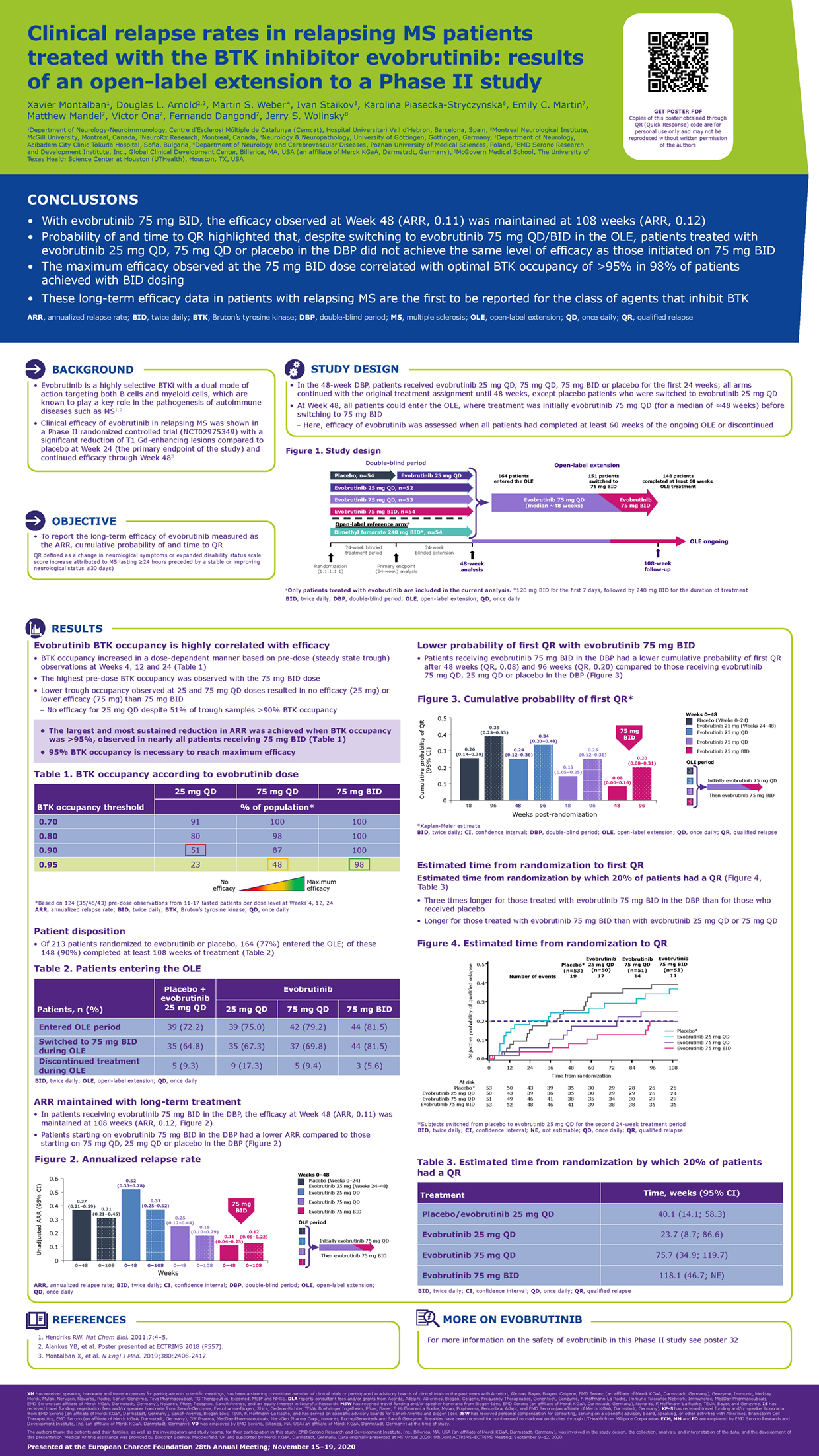Clinical relapse rates in relapsing multiple sclerosis patients treated with the BTK inhibitor evobrutinib: results of an open-label extension to a Phase II study
Abstract
Background:
Evobrutinib is a highly selective Bruton’s tyrosine kinase inhibitor with a dual mode of action targeting both B cells and myeloid cells. Clinical efficacy of evobrutinib in relapsing multiple sclerosis was shown in a Phase II, randomized, controlled trial (NCT02975349): T1 Gd-enhancing lesions were significantly reduced versus placebo at Week 24 (primary endpoint); efficacy continued through Week 48. Long-term efficacy in the ongoing open-label extension (OLE) is reported here.
Methods:
During the double-blind period (DBP), patients received evobrutinib 25mg once daily (QD), 75mg QD, 75mg BID or placebo for 24 weeks, and continued treatment until 48 weeks, except for the placebo group who switched to evobrutinib 25mg QD. At Week 48, patients could enter the OLE. Initial treatment was evobrutinib 75mg QD (median ≈48 weeks) before switching to 75mg BID. Efficacy was assessed by annualized relapse rate (ARR), and cumulative probability of and time to first qualified relapse (QR) in patients completing ≥60 weeks of OLE treatment.
Results:
Of 213 patients randomized in the DBP, 164 (77%) entered the OLE; of these 148 (90%) completed ≥108 weeks of treatment overall. Compared with those initiated in other DBP arms, patients initiated on evobrutinib 75mg BID had: lower ARR (95% CI), 0.11 (0.04, 0.25) at Week 48 and 0.12 (0.06, 0.22) at Week 108; lower cumulative probability of first QR, 0.08 (0.00, 0.16) at Week 48 and 0.20 (0.08, 0.31) at Week 96. The estimated time by which 20% of patients had a QR was almost three times longer for those initiated on 75mg BID versus placebo.
Conclusions:
ARR improvement with evobrutinib 75mg BID at Week 48 was maintained at Week 108. Probability of and time to first QR highlighted that patients initiated on 75mg BID achieved greater treatment efficacy than those initiated on evobrutinib 25mg QD, 75mg QD, or placebo.
Clinical relapse rates in relapsing multiple sclerosis patients treated with the BTK inhibitor evobrutinib: results of an open-label extension to a Phase II study
Previous publication of these data: These data were presented for the first time at MS Virtual 2020: 8th Joint ACTRIMS/ECTRIMS Meeting, September 9–12, 2020.

